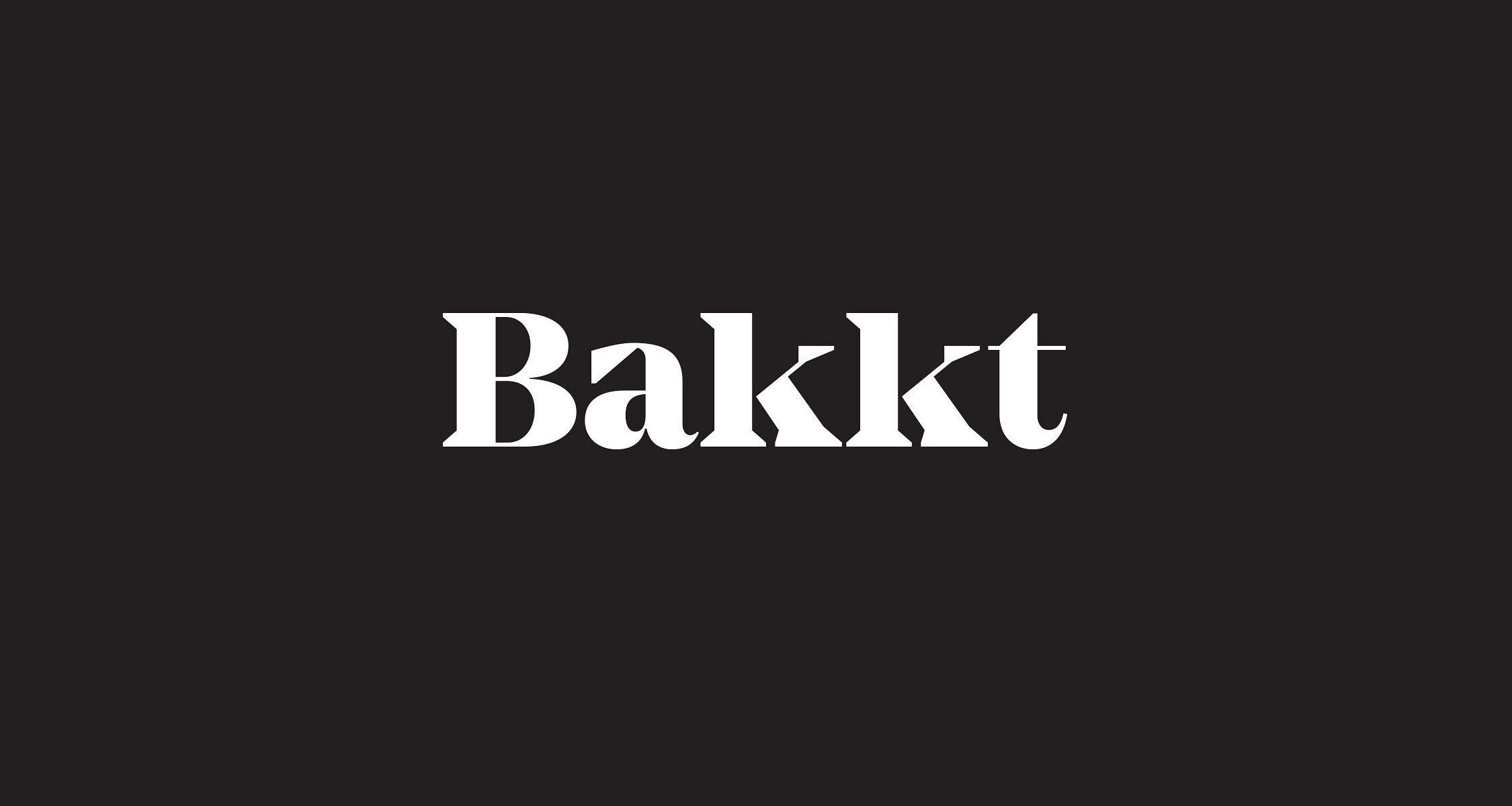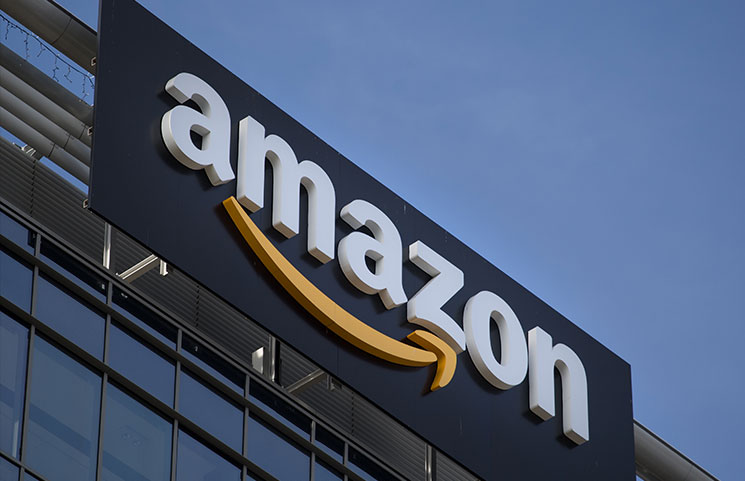Blockchain News
Bakkt Releases New Details About Its Crypto Custody Service, Announces Partnership with BNY Mellon

Crypto startup Bakkt has released new details about its crypto custody service. In a blog post from earlier today, Bakkt updated followers on its bitcoin futures contract trading platform while also unveiling new details about its custody services.
Bakkt, for those out of the loop, has been a much-anticipated bitcoin trading platform for nearly a year. Originally announced in summer 2018, Bakkt was scheduled to launch in the fall. That start date was pushed back until January 2019, and then once again into Q2 2019.
Clearly, Bakkt is taking the times to make sure its trading platform is perfect before releasing to retail and institutional investors.
Today’s update from Bakkt COO Adam White discusses some of the work the company has been doing to ensure customer funds stay secure.
What We Learned from Bakkt Today
First, White confirmed the news that Bakkt had filed an application to the New York Department of Financial Services. The DFS is New York’s primary markets regulator and has relatively strict regulatory procedures compared to regulators in other states.
Next, White unveiled specific details Bakkt’s custody solution, which he claims has been in the works for two years.
White began by discussing the importance of security and testing. Prior to working at Bakkt, White was an executive at Coinbase. Before that, White was a test pilot in the United States Air Force. He’s using that high stakes experience to make sure Bakkt gets its right the first time:
“The high stakes environment of military flight test required every system and safeguard be checked and rechecked for safety and performance. As Bakkt prepares to provide custody of digital assets for sophisticated institutional clients, we’re applying the same rigor to safeguarding our customers’ funds.”
With those high standards of safety and security in mind, White and the team at Bakkt have built Bakkt’s custody solution off the same “institutional-grade hardware, operational controls, and cybersecurity systems” used by the Intercontinental Exchange (ICE) and its subsidiaries like the New York Stock Exchange.
Bakkt also revealed something else significant: the company is partnering with the Bank of New York Mellon (BNY Mellon) to ensure funds stay secure and geographically distributed.
Bakkt Acquires Digital Asset Custody Company (DACC)
As part of today’s announcement, it was also revealed that Bakkt has acquired Digital Asset Custody Company (DACC). The DACC team has been fully integrated into Bakkt.
The acquisition has added “native support of 13 blockchains and 100+ assets” to Bakkt, allowing the crypto startup to offer secure custody of more digital assets than before.
How Bakkt’s Crypto Custody Solution Works
Bakkt’s custody solution includes all of the following components:
Warm (Online) and Cold (Offline) Wallets
“Bakkt uses both warm (online) and cold (offline) wallet architecture to secure customer funds,” explains Bakkt CEO Adam White.
“The majority of assets are stored offline in air-gapped cold wallets that are insured with a $100,000,000 policy underwritten by leading global insurance carriers.”
Meanwhile, both the warm and cold wallets use on-chain and off-chain security measures to safeguard crypto keys, including the enforcement of multi-signature controls. Customer funds are protected by layers of additional controls – like multi-factor authentication, destination address whitelisting, and role-based permissions.
Strong Key Security
Bakkt’s warm wallet crypto keys are secured using FIPS 140-2 level 3 or higher hardware security modules (HSM). The HSMs have “physical and logical attributes” that “prevent the viewing, modification, or extraction of private key material.”
Additionally, all cold wallet cryptographic keys are sharded, encrypted, and geographically distributed in an m-of-n architecture. Private keys are never transferred across any open or unecrypted communication channel, and access is protected by firewalls and other network layer security controls.
Bakkt’s Physical Crypto Security
Bakkt uses strong physical security procedures to protect customer funds even further. All Bakkt’s cryptographic systems are secured “in bank-grade vaults and datacenters that are protected with 24/7 physical security.”
The building uses role-based permissions that limit employee access. Plus, systems are regularly tested to ensure a seamless transition to Bakkt’s parallel disaster recovery facilities.
Bakkt Reveals Partnership with BNY Mellon
Part of Bakkt’s physical security is a partnership with BNY Mellon, one of New York’s leading financial institutions.
BNY Mellon is helping Bakkt ensure geographically-distributed private key storage. In a statement, Bakkt praised BNY Mellon for having “a longstanding history of safeguarding the assets of institutional clients such as hedge funds, asset managers, and broker dealers, and we’re excited to work with them.”
The fact that BNY Mellon and Bakkt are working together is huge news for not only Bakkt, but future institutional support of crypto in general.
One of the World’s Most Advanced Cybersecurity Programs
Bakkt claims to use “one of the world’s most sophisticated cybersecurity programs”, including “the same systems that protect the New York Stock Exchange”.
Threats are identified from a “red team first” perspective, which involves full-scale testing of attack strategies against the institution. Threats are then managed by a global team of security specialists who collaborate closely with law enforcement and the global intelligence community to identify, analyze, and prevent attempts at inbound intrusion.
Operational Controls Allow Protection Against Withdrawal Attempts
One final aspect of Bakkt’s security systems is its operational controls. The company claims to have implemented “strict operating procedures to direct the safekeeping and storage of customer funds.” Withdrawal requests are received, verified, and processed by dedicated staff located in multiple geographies, with requests validated – both manually and systematically – against a policy ruleset. That policy ruleset analyzes things like the amount, destination, and velocity of transactions.
Bakkt also has additional anti-collusion and insider threat controls in place to prevent any member of the Bakkt team from accessing customer funds. In fact, Bakkt claims “no individual can access customer funds”, and any access to customer funds must be conducted by “multiple individuals from multiple teams in multiple locations”.
Bakkt is Preparing to Launch the Best Crypto Custody Solution in the Industry
Bakkt has been highly anticipated for months. Based on the information revealed today, Bakkt could live up to the hype. Bakkt could genuinely be the best crypto custody solution the industry has seen so far.
Bakkt not only uses the same infrastructure that successfully secures the Intercontinental Exchange (ICE) and the New York Stock Exchange (NYSE), but it has also improved on that infrastructure even further. The ultimate result is that institutions wishing to participate in crypto markets can do so more securely than ever before.

Blockchain News
Amazon Files New Patent For a Proof-of-Work System That Uses Cryptography

- Amazon has filed a patent for a Proof-of-Work (PoW) system that uses cryptography. Amazon has been working in different blockchain-related projects in the last few months and it is expanding its presence in the market.
Amazon has filed a patent for a Proof-of-Work (PoW) system that uses cryptography. Amazon has been working in different blockchain-related projects in the last few months and it is expanding its presence in the market.
Although this is not related to blockchain technology, Amazon has made several advances in terms of Distributed Ledger Technology (DLT). A few days ago, the company announced that its Amazon Web Services were going to be using a managed blockchain service and allow users and companies to set up their own blockchain network using Amazon’s services.
Moreover, Whole Foods, a subsidiary of Amazon, announced this week that it will be accepting payments in different virtual currencies, including Bitcoin (BTC), Ethereum (ETH), Gemini USD (GUSD) and Bitcoin Cash (BCH).
Amazon has recently filed a patent that makes reference to a proof-of-work (PoW) system that uses cryptography. This patent was filed just a few days ago on May 14 and it describes techniques that use Merkle trees as a solution to a PoW challenge.
Implementing New PoW Tools
Blockchains are formed by different components, and one of them is Merkle trees. In this patent filed by Amazon, the generation of these Merkle trees could fulfil a challenge and give access to a computer resource. The abstract explains that this challenge may include a message and a seed that can be used in part to cryptographically derive information that could be used to generate a solution to that challenge.
This innovation could eventually be used to protect systems from denial-of-service attacks and other similar actions from attackers and hackers, which are expanding in the crypto space. The patent does not make any reference to blockchain technology or virtual currencies.
Anthony Pompliano, co-founder and partner at Morgan Creek Digital, has also informed about Amazon’s plans and PoW system.
Amazon Files New Patent For a Proof-of-Work System That Uses Cryptography
Amazon has recently filed a patent that makes reference to a proof-of-work (PoW) system that uses cryptography. This patent was filed just a few days ago on May 14 and it describes techniques that use Merkle trees as a solution to a PoW challenge.
Implementing New PoW Tools
Blockchains are formed by different components, and one of them is Merkle trees. In this patent filed by Amazon, the generation of these Merkle trees could fulfil a challenge and give access to a computer resource. The abstract explains that this challenge may include a message and a seed that can be used in part to cryptographically derive information that could be used to generate a solution to that challenge.
This innovation could eventually be used to protect systems from denial-of-service attacks and other similar actions from attackers and hackers, which are expanding in the crypto space. The patent does not make any reference to blockchain technology or virtual currencies.
Anthony Pompliano, co-founder and partner at Morgan Creek Digital, has also informed about Amazon’s plans and PoW system.
BREAKING: Amazon has filed a patent in the US for a proof-of-work system that leverages cryptography.
There’s not a large company in the world who isn’t going to join the revolution.
THE VIRUS IS SPREADING 🔥
— Pomp 🌪 (@APompliano) May 16, 2019
Although this is not related to blockchain technology, Amazon has made several advances in terms of Distributed Ledger Technology (DLT). A few days ago, the company announced that its Amazon Web Services were going to be using a managed blockchain service and allow users and companies to set up their own blockchain network using Amazon’s services.
Moreover, Whole Foods, a subsidiary of Amazon, announced this week that it will be accepting payments in different virtual currencies, including Bitcoin (BTC), Ethereum (ETH), Gemini USD (GUSD) and Bitcoin Cash (BCH).
Image courtesy of Time.com
Blockchain News
eBay ads suggest that you will soon accept crypto

Photos of the preparations for the next conference of Consensus 2019, which will be held this May 15 in New York, in which eBay is one of the sponsors, have been leaked. According to the photographs of the marketing material of the conference, they suggest that eBay could soon start accepting cryptocurrencies.
This year, eBay is one of the main sponsors of the annual event, and joins other companies such as: Tata, Deloitte, IBM, Microsoft, the Federal Government of Australia, Citi, AWS and Accenture.
The rumor was originated by the publication of a Twitter user:
Filtering the Consensus, eBay possibly announces the support of cryptocurrencies on its website.
According to the filtered photos, the eBay advertising is not very clear, but probably that is what it is, that is suggestive. However, it shows a clear interest of the company for virtual currencies and digital collectables. In one of the ads you can read:
Virtual currency. It's happening on eBay.
The choice of the slogan worked; After the photographs were put online, social networks and traditional media started a debate that continues to involve the cryptocurrency community and generate any number of theories about it.
In particular, the phrase “is happening on eBay,” in reference to virtual currencies, seems to suggest something imminent. Do not forget that eBay is one of the sponsors of the event, which suggests that eBay is looking for partnerships within the block chain industry, because in another ad you can see that it “boasts” of its broad “customer base” of 179 million buyers », something that attendees can see during the entire event.
On the other hand, for some time, eBay has been a platform where Bitcoin transactions are made between users, so it would not be surprising if the company decided to organize, for example, an OTC exchange to increase the volume of these transactions, and therefore also that of their commissions.
According to other hypotheses published on Twitter, it is possible to announce the support to Binance Coin (BNB) as an alternative means of payment to the fiduciary currencies, or it could announce an association with the UTRUST cryptographic payment platform.
This is because an eBay executive, Sanja Kon, joined UTRUST last year, an encryption payment company, which could also be indicative of eBay's encryption ambitions. Possibly, Kon would try to get eBay as a strategic partner.
UTRUST supports Bitcoin, Litecoin and Ripple among other currencies, while also generating its own native token, which, if true, would probably be included in any form of acceptance agreement.
In December, eBay's senior vice president, Scott Cutler, revealed that the company was considering cryptocurrencies as an additional payment option, but they were still not entirely sure.
However, it should be remembered that eBay already has a category called «Virtual currency», so the slogan «Virtual currency. It's happening on eBay »: could refer to that category, which allows users of the platform to exchange crypts against fiat anonymously.
If that is the case, then the cryptocurrency community has been reaching conclusions too quickly. Or, as some suppose, could refer to what could be transformed into an exchange.
These and other rumors, although not confirmed, fit the optimistic sentiment of this year, since throughout this 2019 we have seen companies and some governments have shown a more proactive stance to support and approach blockchain.
Although each hypothesis should be considered as an assumption without concrete foundations, the community will be aware of where eBay's intentions might be headed.
Blockchain News
Starbucks is Making Use of Blockchain and IoT to Build Better Personal Relations With its Customers

As per an all-new article published on the official Microsoft website earlier today, Starbucks is in the process of devising a novel blockchain-driven UI that will allow customers to have a smoother, more personalized coffee buying experience in the near future.
In regards to this development, Gerri Martin-Flickinger, Starbucks’ CTO and VP, claimed that his company had hired a “world-class team of experts” who were experimenting with a host of technologies so as to create solutions that will help increase the multinational’s human interaction with its customer base.
More on the Matter
Many of our regular readers may remember that Starbucks has been making use of technology called ‘Reinforcement Learning (RL)’ for quite some time now. For those of our readers unaware of what RL is, it is essentially a type of machine learning protocol through which a system is put in a position to make better decisions when faced with complex everyday scenarios (primarily via the use of external feedback data).
Additionally, it should also be pointed out that Starbucks’ smartphone app too makes use of a ‘reinforcement learning’ module — so as to deliver users with customized recommendations based on things like:
- Local store inventory
- Weather
- Time of day
- Community preferences
On the subject, Starbucks’ Jon Francis was quoted as saying:
“Just like their relationship with a barista, customers receive the same care and personalized recommendations when it comes from our digital platforms,”
Other Key Data Worth Remembering
- Starbucks is going to be making use of various RL-based operational modules to improve its drive-thru experience in the coming few months.
- The technology is currently being tested out at the Tryer Center Innovation Hub in Seattle.
- According to Francis, machine learning and artificial intelligence based protocols will soon be used by Starbucks within domains such as future store design, customer engagement and inventory optimization.
- Through the use of IoT-based devices, Starbucks in conjunction with Microsoft is looking to collect a host of data that will allow the firm to identify any problems with its coffee vending machines that might be located all across the globe. Not only that, the platform will also allow Starbucks to “send new coffee recipes directly to machines, which it has previously done by manually delivering the recipes to stores via thumb drive multiple times a year.”
“Think about the complexity — we have to get to 30,000 stores in nearly 80 markets to update those recipes. That recipe push is a huge part of the cost savings and the justification for doing this.”
Blockchain and its Utility in ‘Coffee Sourcing’
On the subject of blockchain technology, a news report claims that Starbucks is all set to deploy a blockchain enabled system that will allow clients to know “more about their coffee beans” with the touch of a button.
This platform is going to be powered by Microsoft’s Azure Blockchain Service — a platform that allows people to know the ”movement of their coffee and its transformation from bean to final bag”.
“While high-quality, handcrafted beverages are so important, it’s the stories, the people, the connections, the humanity behind that coffee that inspires everything we do. This kind of transparency offers customers the chance to see that the coffee they enjoy from us is the result of many people caring deeply.”
Final Take
In closing out this piece, it should be pointed out that during its annual shareholders meeting in March this year, Starbucks’ executive brass revealed that their customers will soon be able to use the firm’s official smartphone app to trace the journey of their individual coffee cups.
“What we’re still working on is interviewing coffee farmers in Costa Rica, Colombia and Rwanda, learning more about their stories, their knowledge and their needs in order to determine how digital traceability can best benefit them. We’re forging new ground here, so we’re excited to report more in the coming months.”









